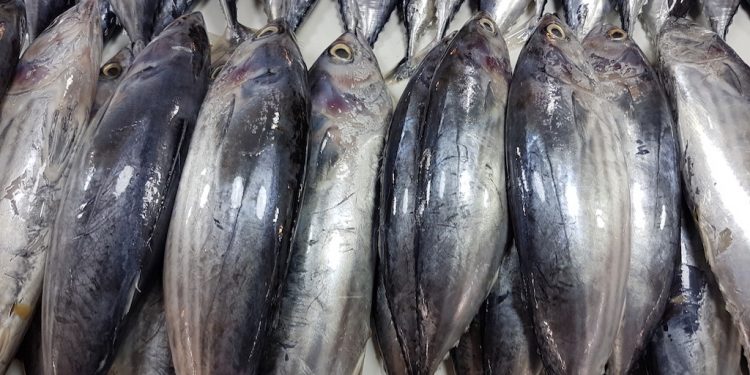The Global Tuna Alliance (GTA) is warning that failure to make progress at the upcoming session of the WCPFC could damage the commercial credibility of tuna stocks in the Western-Central Pacific.
The 19th session of the Western-Central Pacific Fisheries Commission (WCPFC) takes place from the 27th November-3rd December, with harvest strategies, electronic monitoring and labour issues on the agenda.
While there is a proposal on the table for a skipjack management procedure, the GTA is concerned that its recommendation to delay full implementation by up to six years fails to grasp the urgency that may be needed to avoid this stock falling ‘out of the green,’ or in other words, prevent it from becoming overfished.
With over half of all skipjack caught globally passing through GTA Partners, this is a concern and could lead to GTA Partners reviewing their sourcing policies.
According to successive stock assessments, the Western and Central Pacific Ocean skipjack stock is considered healthy now, although it has been declining over the long term.
The GTA also warns that there are also new challenges are on the horizon, such as climate change, shifts in stock distribution, uncertain economic viability, increased competition, and other drivers of overfishing.
‘The market, including GTA Partners, has evolved. They are no longer just looking at the current status of stocks. While obviously important, robust long-term management is increasingly seen as vital in long-term decision-making by businesses,’ said GTA executive director Dr Tom Pickerell.
‘If delegates get it right at the upcoming WCPFC meeting, by accelerating the adoption of harvest strategies, it will only inspire greater confidence in the market in the long-term to continue purchasing tuna from the region.’
He commented that implementing the skipjack management procedure in December would mitigate risk and safeguard this valuable fishery for the future, and fulfil a commitment made by the WCPFC over eight years ago.
The GTA is concerned by the proposal from the Pacific Islands Forum Fisheries Agency (FFA), a group of 17 countries, who seek to trial this modern approach by up to six years.
‘Without a management procedure in place to provide a science-based approach for addressing these shocks to the system, we are concerned that fishery managers would be under serious pressure to ignore scientific advice in a crisis, thus risking the health of the fishery. On the other hand, if the biomass increases, the management procedure could just as quickly permit increases in catch or fishing effort, without risking stability in catch rates.’
Image: Obsidian Soul









